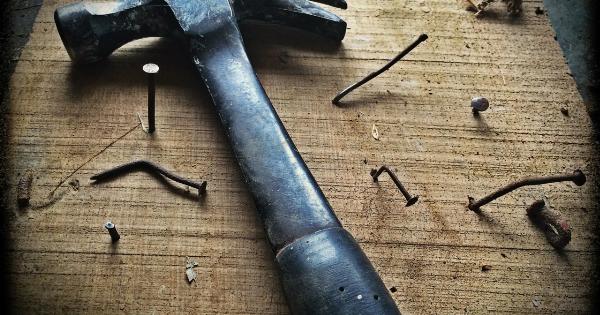Having strong and healthy nails is not only important for aesthetics but also for overall nail health. However, many people struggle with the issue of brittle and breaking nails. There could be several reasons behind this common problem.
In this article, we will explore the major factors that can contribute to nail breakage and discuss how to prevent and treat this issue.
Poor Nail Care Routine
One of the primary reasons why nails break easily is a poor nail care routine. Neglecting proper nail care can weaken the structure of the nails, making them more prone to breakage. Some common mistakes include:.
Using Harsh Nail Products
Using harsh nail products such as acetone-based nail polish removers or strong chemical-laden nail polishes can strip the nails of their natural oils and moisture, leading to dry and brittle nails.
Opting for gentler alternatives and moisturizing the nails regularly can help prevent breakage.
Insufficient Nail Hydration
Just like the rest of our body, nails also require proper hydration to stay healthy. Lack of moisture can make the nails dry and brittle, making them more prone to breakage.
Drinking an adequate amount of water and applying a moisturizing nail oil or cream can help keep the nails hydrated and flexible.
Dietary Deficiencies
Our nails reflect the overall health of our body, and nutritional deficiencies can significantly impact their strength and resilience.
Lack of essential nutrients such as biotin, vitamin E, calcium, and iron can weaken the nails, causing them to break easily. Including a balanced diet rich in these nutrients can promote healthy nail growth.
Excessive Use of Nail Enhancements
While nail enhancements such as acrylic or gel nails may give you the desired aesthetic appeal, they can also weaken your natural nails if not applied and removed properly.
Frequent use of nail enhancements can leave your nails thin and fragile, making them more susceptible to breakage.
Improper Nail Trimming
Trimming nails too short or unevenly can lead to weak points in the nails, making them more likely to break. It is crucial to file and trim the nails correctly using proper tools to avoid damage and maintain their overall strength.
Overexposure to Water
Constant exposure of nails to water, especially hot water, can cause them to become weak and prone to breakage.
Cleaning or washing dishes without gloves, taking long showers, or swimming frequently without protecting your nails can lead to brittle nails. Wearing gloves while performing household chores and minimizing nail exposure to water can help prevent breakage.
Underlying Health Conditions
In some cases, frequent nail breakage may indicate an underlying health condition. Conditions like hypothyroidism, psoriasis, eczema, and malnutrition can affect the health of your nails and make them more fragile.
If your nails continue to break despite practicing good nail care, it is advisable to consult a healthcare professional to rule out any underlying health issues.
Excessive Use of Nail Tools
Using nail tools excessively or aggressively can weaken the nails and cause them to break. Vigorous filing, pushing back the cuticles too forcefully, or using metal tools to clean under the nails can damage their structure.
Opting for gentle tools and practicing proper nail care techniques can prevent nail breakage caused by excessive use of nail tools.
Climatic Factors
Extreme weather conditions can also impact the health of your nails. Cold and dry climates can cause the nails to become brittle and prone to breakage. Similarly, excessive exposure to hot and humid weather can also weaken the nails.
Protecting your nails with gloves in cold weather and keeping them moisturized can help combat the effects of climatic factors.
Conclusion
Nail breakage can be a frustrating problem, but by understanding the major factors that contribute to it, you can take steps to prevent and treat the issue.
Following a proper nail care routine, avoiding harsh chemicals, staying hydrated, maintaining a balanced diet, and protecting your nails from excessive exposure can help strengthen your nails and prevent breakage. If the problem persists, it is always best to seek advice from a healthcare professional to rule out any underlying health conditions.






























